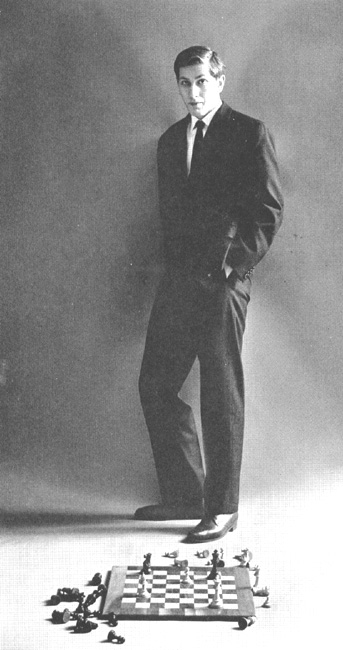
Some Fischer facts
- Born: March 9, 1943 in Chicago, Illinois
- Died: January 17, 2008 in Reykjavik, Iceland
- Learned the rules of chess at age 6!: 1949
- First recorded tournament game: July 1955
- International Grandmaster title: 1958
- U.S. Champion eight times in eight attempts!: 1957, 1958, 1959, 1960, 1962, 1963, 1965, 1966
- Winner of: every tournament and match in which he participated from December, 1962 through World Championship match 1972 with the exceptions of Capablanca Memorial, 1965, (2nd place – ½ point behind Smyslov), and Piatigorsky Cup, 1966, (2nd place – ½ point behind Spassky).
- Bobby Fischer’s tournament and match results: 415 wins, 248 draws and 85 losses out of 748 games played from 1955 through 1992 for a performance average of .721 or 72.1%
- Fischer’s highest achieved rating: 2785 ELO.
“I like to do what I want to do and not what other people expect me to do. This is what life is all about, I think.”
— Robert J. Fischer, USA, World Chess Champion 1972-75
Chess master Bobby Fisher is dead at the age of 64
Gudjon Helgason.
January 17, 2008 – Reykjavik, Iceland (AP) — Chess,” Bobby Fischer once said, “is life. It was the tragedy of the chess master that often overshadowed the dirty, tasteless details of his life. Fischer, who died at the age of 64, was a child prodigy, a grandmaster as a teenager, and – until the age of 30 – a world champion who won a Cold War battle with Soviet champion Boris Spassky.
But he spent the last three decades of his life in seclusion, intermittently violated by unpredictable and often anti-Semitic comments and absurd litigation with his homeland, the United States.
“He was the pride and sadness of chess,” said Raymond Keene, British grandmaster and chess correspondent for London’s The Times. “It’s tragic that such a great man has gone mad and fallen into anti-Semitism.
Fischer died Thursday from kidney failure in Reykjavik after a long illness, said Friday a friend and spokesman Gardar Sverrisson.
“The chess giant no longer exists,” said Friedric Olafsson, an Icelandic grandmaster and former president of the World Chess Federation.
French chess expert Olivier Tridon said: “Bobby Fischer died at the age of 64. Like 64 chessboard cells”.
In another symmetry, his death took place in a city where he won his greatest triumph – the historic meeting with Spassky.
Originally from Chicago and Brooklyn, Fisher moved to Iceland in 2005 to avoid extradition to the United States, where he was wanted for playing the 1992 match in Yugoslavia despite international sanctions.
At the height of his career, Fischer was a piece of mystery and glamor, attracting millions of new fans to chess.
Russian former world chess champion Garry Kasparov said that Fischer’s ascent to the chess world in the 1960s was a “revolutionary breakthrough” for this game.
“The tragedy is that he left this world too early, and his extravagant life and scandalous statements did not contribute to the popularity of chess,” Kasparov told The Associated Press.
His rival and friend Spassky, who came to his home in France, said in a short telephone interview that he was “very sorry” to hear about Fischer’s death.
World Chess Federation President Kirsan Ilyumzhinov called Fischer “a phenomenon and an era in the history of chess, and I would put the intellectual giant next to Newton and Einstein”.
The American chess champion at the age of 14 and Grandmaster at 15, Fisher defeated Spassky in 1972 in a series of games in Reykjavik to become the first officially recognized world champion born in the USA.
The Fischer-Spassky match in the midst of the Cold War took on mythical proportions as a clash between two world superpowers.
It was a myth that Fischer was happy to feed. “It’s really a free world against the lying, deceitful, hypocritical Russians,” he said.
But Fischer’s reputation as a chess genius was marred, in the eyes of many, by his changeability and often strange behavior.
He lost his title as world champion in 1975 by refusing to defend him from Anatoly Karpov. He dropped out of chess competitions and largely fell out of sight, spending time in Hungary and the Philippines and appearing from time to time to make frank and often outrageous comments.
He praised the 9/11 attacks, saying: “I want the United States to be wiped off the face of the earth,” and described the Jews as “thieving, lying bastards. Fisher’s mother was Jewish.
In 2004, Fisher was arrested at the Narita airport in Japan for traveling on a revoked American passport. He was threatened with extradition to the United States on charges of violating sanctions imposed to punish then Yugoslav leader Slobodan Milosevic, who played a rematch against Spassky in that country in 1992.
Fischer renounced his American citizenship and spent nine months in prison before the dispute was resolved when Iceland, a chess power with a population of 300,000, granted him citizenship.
“They talk about the ‘axis of evil,'” Fisher said when he came to Iceland. “What about the allies of evil… What about the USA, England, Japan, Australia? These are the ‘axes of evil.
In his recent years, Fischer has spoken out against the chess establishment, arguing that the outcome of many top-level chess matches was decided in advance.
Instead, he defended his concept of “Fischrandom”, or random chess, in which pieces are shuffled at the beginning of each match in an attempt to revive the game.
“I don’t play old chess,” he told reporters when he came to Iceland in 2005. “But obviously, if I played, I would be the best.
Born on March 9, 1943 in Chicago, Robert James Fischer was a child prodigy, playing in competition since he was 8 years old.
At 13, he became the youngest player to win the U.S. Junior Championship. At 14, he won the U.S. Open for the first time out of eight times.
At 15, he became an international grandmaster, the youngest holder of this title.
Tall and striker, he was a chess star, but has already gained a reputation for his chaotic behavior.
He was late for tournaments, left matches, refused to play if the lighting did not suit him, and was impatient with photographers and cartoonists. He was convinced of his own superiority and called the Soviets “communist crooks.
“Chess is war on the board,” he once said. “The goal is to crush another person’s mind.
His behavior often upset opponents in Fischer’s favor.
The most striking thing was seen in the championship match with Spassky in Reykjavik in July-September 1972. By agreeing to play Spassky in Yugoslavia, Fischer objected one by one to the agreements, and they ended up in Iceland.
Fisher then demanded more money and, at the insistence of at least Henry Kissinger, went to Iceland after the British financier Jim Slater enriched the prize pot.
“Fisher is known for his ignorance, his rudeness, and perhaps his madness. I really don’t worry about it because I didn’t do it for that reason,” Slater said.
“I did it because he was going to challenge Russia’s superiority and it was good for chess,” he added.
When the game started a few days late, Fisher lost the first game with an elementary error, finding that the cameras he reluctantly received were not invisible and unheard of, but right behind the players’ seats.
He boycotted the second game and the referee awarded the point to Spassky, putting the Russian ahead with a score of 2:0.
But then Spassky agreed to Fischer’s demand that the matches be held in the back room away from the cameras. In 21 games Fischer defeated Spassky – 12.5 points to 8.5 points.
In a recent book, The White King and the Red Queen, British author Daniel Johnson said the match was “an abstract antagonism on an abstract battlefield using abstract weapons…. but their fight spanned all human life”.
“In subordination of Spassky to his destiny and fierce jubilant triumph of Fischer, the outcome of the Cold War was already decided.
The details of the funeral were not immediately known. Fisher together with his old companion, Japanese chess player Miyoko Watai, moved to Iceland. She survived him.
Writers of Associated Press Jill Lawless in London and Mansur Mirovalev in Moscow contributed to this report.
On a happy side note, Bobby lived 64 years: the number of cells on the chessboard that gave him life.
- January 17, 2008
- Updated the site to add sad news about Bobby’s death.
Updates have been removed to shorten the list: 1995-2007
This site was created on October 6, 1995
Disclaimer of liability:
- This website is a Fischer fan site.
- Mr. Fischer had no contact with this author.
- Surprisingly, Bobby exposed this site on his personal website as impersonating him.
- I never claimed to be Mr. Fischer, and I feel a little sad that he looked down on the devotion to this site attributed to his life.
Mr. Fischer moved around a lot after he was unable to defend his title in 1975. Bobby lived in Hungary, Brazil, the Philippines, England, Japan and finally in Iceland, where he lived his last days.
He was imprisoned in Japan for an invalid passport, which was revoked, and because he did not have legal citizenship, Japan kept him there for 8 months. He applied for Icelandic citizenship and was granted it in March 2005.
Fisher was long considered an eccentric genius. He is one of the greatest chess players in the world, with I.Q. 180, he won the World Chess Championship from Soviet chess player Boris Spassky in the 1972 match. But he lost the title when three years later he refused to appear to defend his title.
Mr. Fischer, who has been Grandmaster since the 1950s, became the first – and so far the only – American world champion of 1972. He disappeared for most of 20 years before entering the stage in 1992 to play for 5 million dollars with his old rival Spassky. The match violated the sanctions imposed by the UN, and in a controversial step he was indicted in the United States. President George W. Bush personally approved this trial.
Since then, he has been a recluse. Fischer’s return match untitled in 1992 against Spassky, which Fischer won despite not participating in professional chess competitions for two decades. At the time, he said he had not paid U.S. income tax for 15 years, and asked why no economic sanctions were imposed on Israel.
At a press conference on June 19, 1996 in the Argentinean capital Fisher, hundreds of journalists and fans of chess, many of whom came from all over the world, were welcomed. The aim of the conference was to announce the launch of Fischer’s new random chess game. Fischer noted that with his new improved version of chess, creativity and talent in chess will be more important than remembering and analyzing. He said that many games are prepared even before the players start playing, and that even the so-called world championship between Russian players Kasparov and Karpov was prepared in advance, in “Fischer’s Random Chess” it would be impossible. He also noted that because of such long hours in front of the computer screen many leading players today, such as Anand and Kramnik, wear thick glasses. He also noted that all the research needed to play regular chess made him work hard, and that he got into chess to avoid work! Fisher said that without access to the databases of millions of opening variations in traditional chess, computers do not play chess very well.
On January 13, 1999, Bobby Fischer gave his first live interview in Hungary. He gave a total of 35 live interviews from Hungary, the Philippines, Colombia, Russia and Iceland. They are available in .mp3 format.
Mr. Fischer’s personal website appears to have been removed from the Internet.
FISCHER VS. FIDE
Many readers still wonder why Bobby Fisher did not defend his title against Anatoly Karpov in 1975, despite the $5 million purse offered in the Philippines. Some fans accuse Fischer of refusing to compromise, while others accuse Soviet FIDE of caring for its Russian challenger at all costs. Whatever the truth, here is an excerpt from Fischer’s letter to the World Chess Club in 1974, in which he presents his version of history.
FISHER’S OWN WORDS
The first player to win ten games wins, not counting a draw, with an unlimited number of games. If, with the score from nine to nine wins, a draw is not counted, the champion retains the title and the match is declared a draw with the equally divided number of won games. A match of 24 games wins against the old system (12½ points) and if 12-12 games of the match is held in a draw with the champion’s title preserved and the prize fund, the match is declared a draw with the number of equally divided games. Drawings are considered under this system.
An unlimited match favors the best player. This is the most important point, because in the system of limited play the outcome of the match can lead to very few victories, giving the weaker player a chance to “good luck”. In addition, in the system of limited play, the player who comes forward has an advantage beyond any proportion. This creates an additional element of chance. The player who wins the match should be the player who plays the best in the long run – not the player who jumps to an early leading position. The player who is behind must give his opponent a “draw chance” in each game until he caught up (if he is a champion) or takes a leading position if he is a contender. Giving a “draw chances” to the Grandmaster is a great handicap, and the player who has to do it must eventually (because time is “running out”) take a serious risk, which may lead to further defeats and “go deep into the hole” from which he will probably not be able to escape. On the other hand, if a player who is behind can “pull out of it” and take the initiative or level the score, his opponent may be in the same unfair disadvantage. How do you explain Smyslov’s 1957 victory over Botvinnik as a seemingly convincing style with his catastrophic defeat the following year? Maybe it is simply explained by the situation – after all, in the 1958 match Smyslov lost the first three games! And he never caught up.
As explained, the loss is a very serious event in a match with a limited game, which explains the draw in the Karpov-Korchnaya match, in the Petrosian-Korchnaya match of 1971, and in the Petrosian-Hubner match of 1971. The percentage of draws in this type of matches increases – sometimes sharply. In the 24th game match for the title, it should be understood that there was always one of two players to win to play a draw! So it is not surprising that in matches of this type there are many draws? Spectators hate a draw – spectators bring money – no money. There will be a lot of victories in the system of unlimited draws (there should be at least ten in total); draws do not benefit any of the players – it is reasonable to expect a smaller percentage of draws in an unlimited match, and in general it is proved.
Compare the first player who has won ten games with a limited 24-game system. Question: Which system gives the champion a greater statistical advantage? Answer: The old 24-game system gives the champion a greater statistical advantage… It was grossly unfair to the contender.
“The match can drag on forever”. Theoretically it’s right – almost wrong. For example, a chess game itself theoretically can drag on forever; every 50 moves or so one player moves a pawn or trades something – a game can drag on thousands of moves!…. But practically this is ridiculous – just like an endless match, it’s ridiculous – and if one player is “fed up”, he can always give up the match. There is a precedent for this in the match Capablanca-Lasker [1921]. But if the match drags on for a long time, so what? It only takes place once every three years, and the point is to determine which of the players is the best. But past experience has shown that an endless match does not last forever.
“Concessions will destroy FIDE”. The question should be decided on its merits. If FIDE believes that the system of matches proposed by Fisher is the best, they should accept it. If not, they must reject it. period. “What people think or say” should not be part of it.
The player should not be allowed to “go back” to save or win the title by playing the last game as he could in the old odious limited 24-game system. In the unlimited system, the champion must keep or take the title as a man by winning the last game.
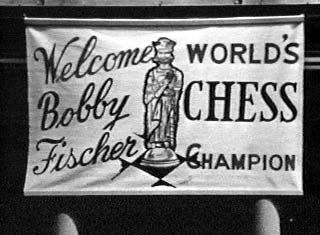
openings fact opponents endgames ECO index
feedback notable 100 games flash movie glossary
articles updates gallery links repertoire books
results
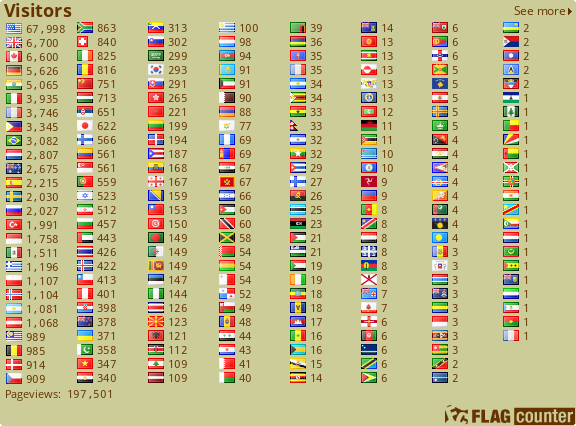

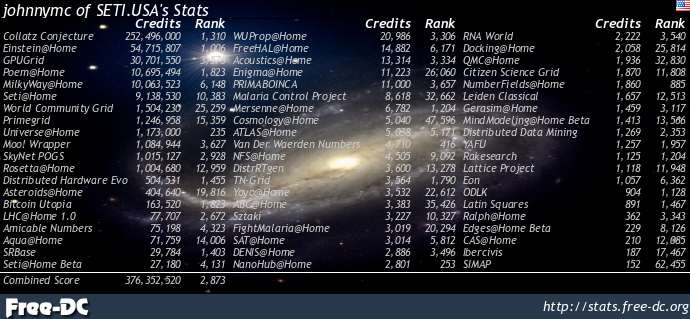
Blog
- The Game of Chess: A Strategic Battle of Minds
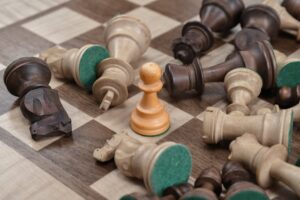 Európai Rulett, much like chess, requires skill, strategy, and careful planning to achieve victory. Chess is one of the oldest and most intellectually stimulating games in the world, played by millions of people […]
Európai Rulett, much like chess, requires skill, strategy, and careful planning to achieve victory. Chess is one of the oldest and most intellectually stimulating games in the world, played by millions of people […] - How Bobby Fischer’s Strategies Apply to Modern Chess
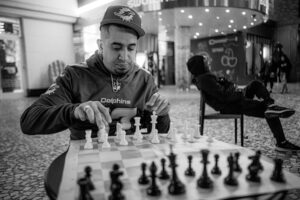 Bobby Fischer, an American chess grandmaster, is celebrated for his profound impact on the game. His unmatched skills and innovative strategies have left an indelible mark on chess history. Fischer’s contributions extend beyond […]
Bobby Fischer, an American chess grandmaster, is celebrated for his profound impact on the game. His unmatched skills and innovative strategies have left an indelible mark on chess history. Fischer’s contributions extend beyond […] - Checkmate Your Repairs: What Chess Strategy Can Teach Us About Using Fiberfix Tape
 In the world of home repairs and DIY projects, we’re constantly seeking innovative solutions to tackle challenges. Enter Fiberfix tape, a revolutionary product that has taken the repair world by storm. But what […]
In the world of home repairs and DIY projects, we’re constantly seeking innovative solutions to tackle challenges. Enter Fiberfix tape, a revolutionary product that has taken the repair world by storm. But what […] - Vancouver’s Self-Storage Solutions: The Chess Grandmaster’s Edition
 In the realm of strategic games, chess holds a prestigious position, celebrated for its complexity, intellectual depth, and the profound strategic thinking it demands. Among the pantheon of chess legends, Bobby Fischer stands […]
In the realm of strategic games, chess holds a prestigious position, celebrated for its complexity, intellectual depth, and the profound strategic thinking it demands. Among the pantheon of chess legends, Bobby Fischer stands […] - Elevating Your Adrenaline with Aviator: A Strategic Chess Approach
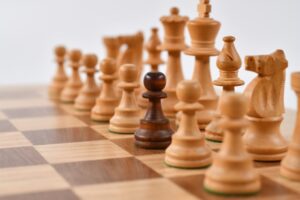 Hey everyone! Arnold Quillborne here, and today I’m diving into the thrill of a game that’s as exhilarating as a high-stakes chess match: Aviator Pin Up. Ever experienced the euphoria of making the […]
Hey everyone! Arnold Quillborne here, and today I’m diving into the thrill of a game that’s as exhilarating as a high-stakes chess match: Aviator Pin Up. Ever experienced the euphoria of making the […] - Checkmate with Technology: Revolutionizing Chess Events with Digital Projectors
 Chess is a timeless game, beloved for its complexity and the intellectual challenge it provides. It’s a game that transcends age and cultural barriers, offering an engaging experience to all who play. However, […]
Chess is a timeless game, beloved for its complexity and the intellectual challenge it provides. It’s a game that transcends age and cultural barriers, offering an engaging experience to all who play. However, […] - Where Concentration Meets Silence
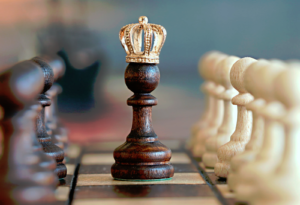 In the world of chess, the battle isn’t just waged on the board; it’s fought within the recesses of the mind. A single move has the potential to unravel strategies, reshape outcomes, and […]
In the world of chess, the battle isn’t just waged on the board; it’s fought within the recesses of the mind. A single move has the potential to unravel strategies, reshape outcomes, and […] - Chess-Themed Website Design Tips for business in Surrey, Canada
 Designing a website for a chess club or association can be a daunting task. There are many things to consider, such as the layout, colors, and overall theme of the website. In this […]
Designing a website for a chess club or association can be a daunting task. There are many things to consider, such as the layout, colors, and overall theme of the website. In this […] - Playing Chess: Silence and Concentration
 If you’re ever looking for a way to improve your focus, or just want a way to pass the time, playing chess can be a great option. Not only does it require concentration […]
If you’re ever looking for a way to improve your focus, or just want a way to pass the time, playing chess can be a great option. Not only does it require concentration […] - Does sleep affect chess performance?
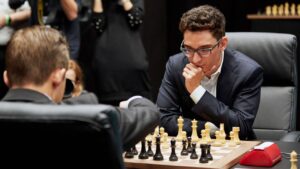 The Wijk aan Zeetournament (2015) was extremely disappointing for Jan Timman: the Dutchman, a two-time winner of the prestigious competition, was losing game after game in the “B” tournament. When I met Timman […]
The Wijk aan Zeetournament (2015) was extremely disappointing for Jan Timman: the Dutchman, a two-time winner of the prestigious competition, was losing game after game in the “B” tournament. When I met Timman […] - How to Get a Better Nights Rest – Ways to Improve Your Chess Game
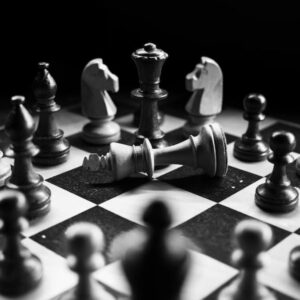 Do you want to get a better night’s rest? One of the best ways to improve your sleep is earmuffs. This may sound strange, but earmuffs are not only for winter! These ear […]
Do you want to get a better night’s rest? One of the best ways to improve your sleep is earmuffs. This may sound strange, but earmuffs are not only for winter! These ear […] - Bobby Fischer Was Tortured in the Pasadena Jailhouse!
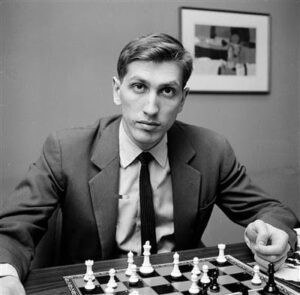 It is funny how easily you can be accused of something you didn’t do. And it’s frightening to feel helpless when they treat you as if you have no rights. How It Begins […]
It is funny how easily you can be accused of something you didn’t do. And it’s frightening to feel helpless when they treat you as if you have no rights. How It Begins […] - Joe Fortune Gambling Tournament Named After Bobby Fischer
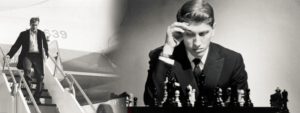 As online gambling is becoming more and more popular due to the restrictions of the COVID-19 pandemic, a lot of attention is paid to online casinos. To impress and attract new players, casinos […]
As online gambling is becoming more and more popular due to the restrictions of the COVID-19 pandemic, a lot of attention is paid to online casinos. To impress and attract new players, casinos […] - How Has Chess Become “Trendy”? Champions Who Train Online Explain
 On Netflix, Twitch, and app blinds, chess reigns supreme. One company is particularly successful: Chess.com, which dominates the market with 70% of online players. At the origin of the success of Chess.com, an […]
On Netflix, Twitch, and app blinds, chess reigns supreme. One company is particularly successful: Chess.com, which dominates the market with 70% of online players. At the origin of the success of Chess.com, an […] - To Strengthen Your Intelligence, Play Chess with Strangers
 Did you know that playing chess, especially with strangers, leads to concentration, memory, and logic? This is explained by Pierre Petitcunot, amateur chess champion and math teacher, co-founder of a site to learn […]
Did you know that playing chess, especially with strangers, leads to concentration, memory, and logic? This is explained by Pierre Petitcunot, amateur chess champion and math teacher, co-founder of a site to learn […]
Golden Members Of Bobby Fischer Fun Club
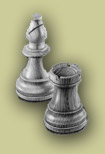
facts ~ books ~ articles ~ results ~ ECO index ~ endgames ~ opponents ~ repertoire
openings ~ notable 100 games ~ glossary ~ feedback

















